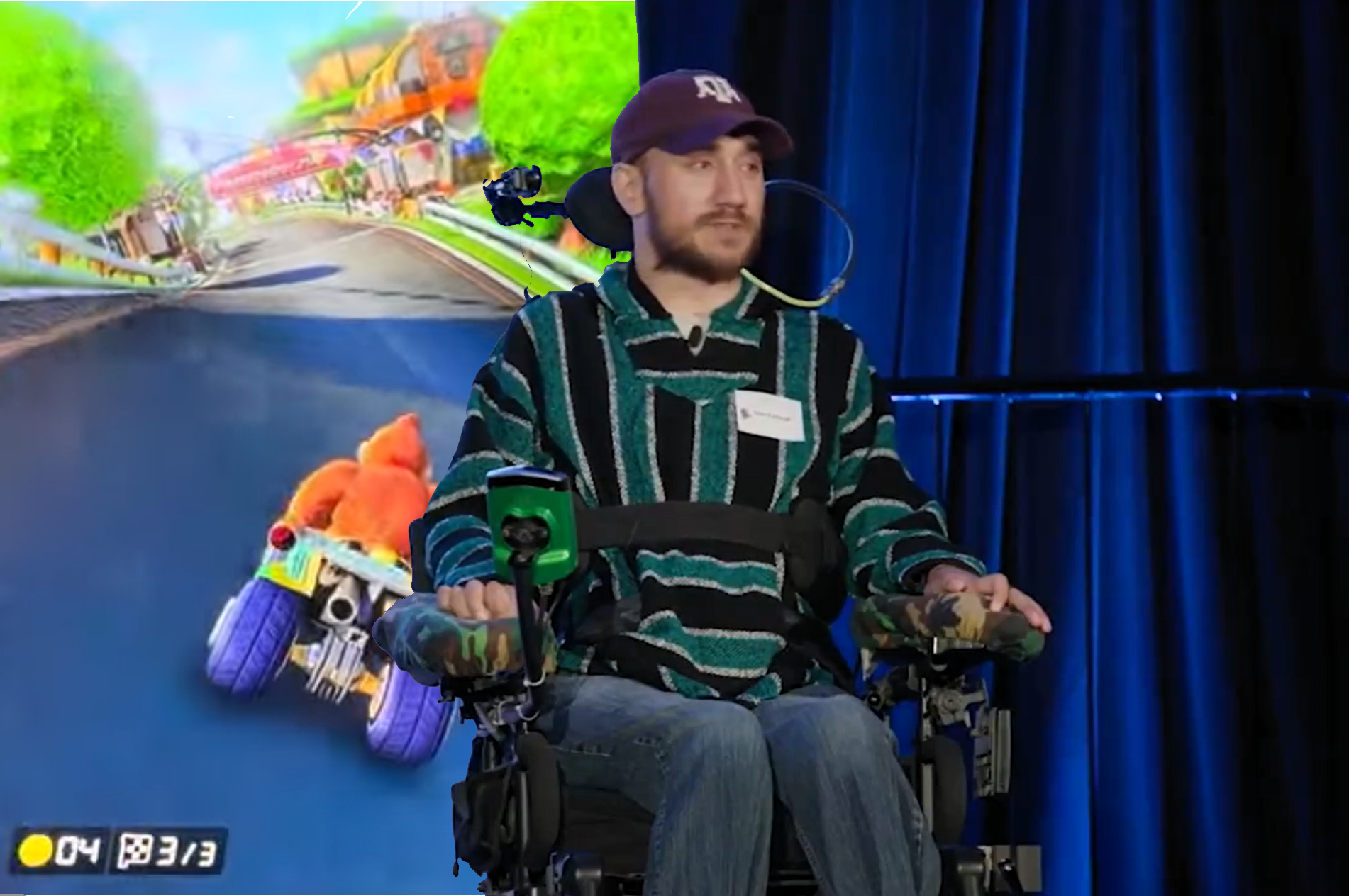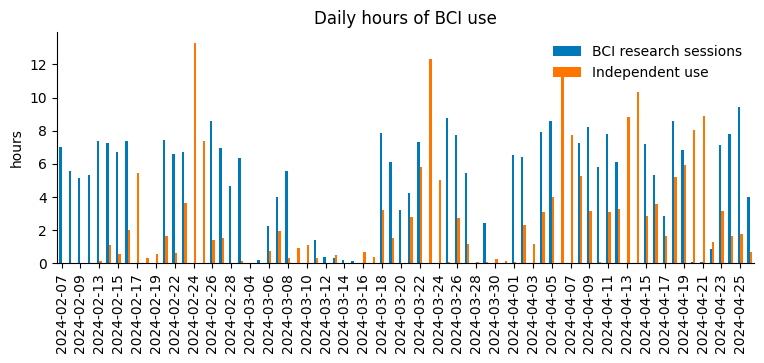First human with Neuralink brain chip uses it to play Mario Kart telepathically
‘I’m beating my friends in games that as a quadriplegic I should not be beating them in,’ says Neuralink wearer

Your support helps us to tell the story
This election is still a dead heat, according to most polls. In a fight with such wafer-thin margins, we need reporters on the ground talking to the people Trump and Harris are courting. Your support allows us to keep sending journalists to the story.
The Independent is trusted by 27 million Americans from across the entire political spectrum every month. Unlike many other quality news outlets, we choose not to lock you out of our reporting and analysis with paywalls. But quality journalism must still be paid for.
Help us keep bring these critical stories to light. Your support makes all the difference.
Participants in the first human trials of the Neuralink brain chip have revealed that they have been using the technology to play video games for up to 12 hours per day.
Neuralink shared details from the first 100 days of its PRIME Study, which saw paralysed people surgically fitted with a brain-machine interface in order to give them control of a computer using just their thoughts.
The Elon Musk-led startup noted in a progress update on Wednesday that people fitted with Neuralink’s Link chip often spent more time using it in their leisure time than during the research sessions.
Participant Noland Arbaugh, a 29-year-old quadriplegic who was paralysed after a diving accident, said he used the technology to play online video games like Civilization VI and Mario Kart.
He was also able to browse the internet, chat online with friends and live stream his gaming sessions.
“It’s like a luxury overload, I haven’t been able to do these things in eight years and now I don’t know where to even start allocating my attention,” Mr Arbaugh said.
“The games I can play now are leaps and bounds better than previous ones. I’m beating my friends in games that as a quadriplegic I should not be beating them in.”

Before having the Neuralink chip installed, Mr Arbaugh used a mouth-held tablet stylus, which had to be put in place by a caregiver, in order to operate a computer.
It could only be used in an upright position and led to muscle fatigue, pressure sores and other discomfort. With the Neuralink chip, he said he was able to use it unassisted while lying in bed.
“It lets me live on my own time, not needing to have someone adjust me throughout the day,” he said.
“The Link has helped me reconnect with the world, my friends, and my family. It’s given me the ability to do things on my own again without needing my family at all hours of the day and night.”
Neuralink has said that future brain chips could offer wearers “enhanced abilities”, such as greater reasoning or the ability to stream music directly to the brain.
Mr Musk has previously stated that it could also help cure blindness and learn new languages instantaneously, however the ultimate goal for Neuralink is to augment human capabilities to the point that they can compete with advanced artificial intelligence.
The company has faced criticism from animal rights groups for alleged mistreatment of pigs and monkeys during early tests of the technology. Both Mr Musk and Neuralink have denied the allegations.

Join our commenting forum
Join thought-provoking conversations, follow other Independent readers and see their replies
Comments